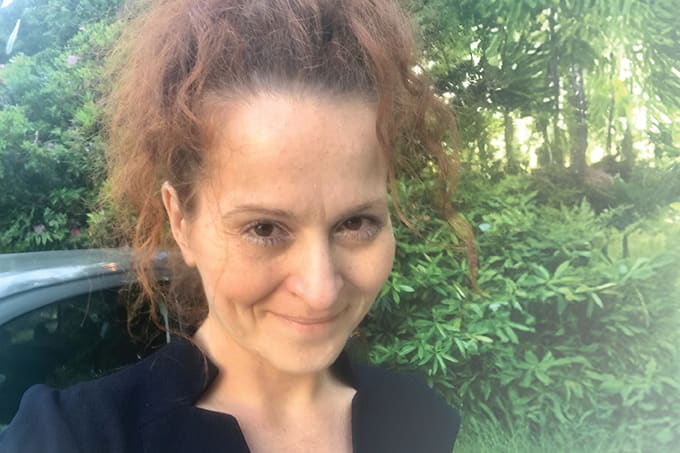
At the third annual Future of Cancer Data Summit: Advancing Innovation, Enhancing Patient Care, experts in pathology, oncology, surgery, and data science convened to discuss care delivery, advances in research, and improving patient outcomes at a global scale. Here, M. E. (Doc) de Baca, Chair of the Council on Informatics and Pathology Innovation, details the themes and findings from this year’s meeting.
What were the “breakthrough” presentations that stood out to you at CAP25?
We had so many excellent presentations at CAP25, but one that truly stood out was the Innovation Hub at the College of American Pathologists (CAP) booth. It brought the future of pathology to life through live demonstrations, interactive discussions, and forward-thinking solutions. More than a series of presentations, it was an immersive experience – inviting members to see, question, and engage directly with the innovations and innovators shaping our field.
Which of the insights presented are most likely to change diagnostic criteria?
We’re already seeing diagnostic criteria evolve – HER2 testing is a clear example of how biomarkers are reshaping standards in real time.
At CAP25, there was real energy around updates in gynecologic and head and neck cancers, as well as biomarker-driven panels that signal where genomics is heading. What stood out was that this shift isn’t just about adding new tests – it’s about integrating molecular and genomic insights directly into diagnostic criteria. That integration makes pathology reports more precise and, most importantly, more meaningful for patient care. We can expect continued changes like these to keep redefining the field.
How are AI tools improving early and accurate disease detection?
Whenever you start with quality data and layers in AI, you create real opportunities to optimize and advance diagnostics. That’s why the CAP launched AI Studio – to provide laboratories with tools and resources to explore AI solutions that can integrate seamlessly into existing workflows and support earlier, more accurate detection.
At CAP25, we also announced a new partnership with the Coalition for Health AI (CHAI). This collaboration aims to develop clearer guidance for pathologists on the responsible and effective use of AI in the laboratory. CHAI’s Chief Operating Officer, Brenton Hill, spoke during the Cancer Data Summit about how to build governance systems for AI implementation in labs. He emphasized a key principle: AI innovation moves at the speed of governance.

What new diagnostic workflows or care delivery models were highlighted at CAP25 that laboratory directors should be aware of?
The CAP previewed a new solution for laboratories whose LIS vendors do not yet support integration of the electronic Cancer Protocols (eCP) or for those still using paper versions. This in-development offering, code-named “eCP Lite,” allows pathologists to complete cancer protocols in an electronic template and then copy and paste the synoptic output directly into their LIS.
The approach brings greater standardization and structure to groups that have relied on homegrown solutions or frequently updated macros from paper protocols. By providing an always up-to-date version of the CAP Cancer Protocols, eCP Lite is designed to ease the burden on smaller laboratories. Continued development is underway, with a targeted introduction planned for 2026.
How are collaborations helping cancer diagnostics to evolve?
This year, stakeholders reaffirmed their shared commitment to connecting and sharing data – with the ultimate goal of improving patient outcomes and accelerating innovation in digital pathology, informatics, AI, and beyond.
We saw compelling examples from leading institutions – including Cleveland Clinic, Henry Ford Hospital, and Cedars-Sinai – that are advancing data capture, interoperability, and data-sharing practices while also addressing key considerations for governance. These efforts demonstrate real progress toward bridging systems and enabling smarter, more efficient care delivery.
Bringing together voices from across the cancer care continuum created a dynamic forum to exchange ideas, showcase best practices, and build new partnerships. This year, we were especially encouraged by the increased participation of Oncology Data Specialists (ODS), whose expertise can accelerate the population of cancer registries through improved data capture and interoperability.
We’ve already seen the impact of these collaborations. Following our first Data Summit, Lurie Children’s Hospital partnered with Scott Campbell and colleagues to extract cancer diagnostic data using SNOMED terminology and map it into an OMOP model. We’re eager to see how the connections and insights from this year’s Summit continue to drive meaningful progress.
What would you advise labs to do now to prepare for the diagnostic future?
Laboratories should begin by establishing internal processes to assess which additional software and AI tools they need, how these tools integrate into pathologists’ workflows, and how they interact with existing systems. Equally important is developing strong governance frameworks, educating staff on the appropriate use of AI tools, implementing robust validation processes, and promoting responsible data use.
To support these efforts, the CAP has several initiatives underway. Most notably, AI Studio, introduced at CAP25, provides a member-only environment where pathologists can safely explore AI algorithms in their own settings. The platform serves as a centralized hub for learning – helping users understand and prepare for the convergence of digital pathology, AI, informatics, and data interoperability within their laboratories. It also offers concise, accessible AI education designed for both newcomers and experienced users alike.




